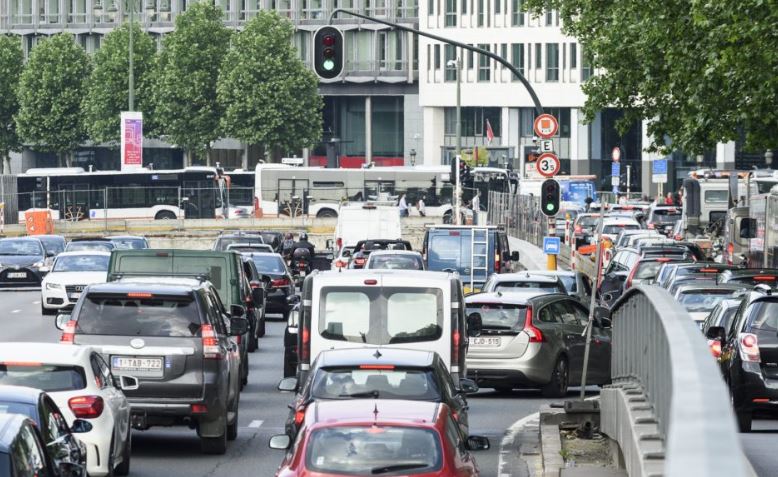The European Union only wants zero-emission or climate-neutral new cars and vans – meaning without combustion engines running on diesel, petrol and natural gas – to be placed on the market and sold as of 2035.
The Environment Ministers of the 27 EU Member States reached a "historic" agreement on Wednesday morning in Luxembourg, to reduce the CO2 emissions of new cars in Europe to zero.
"European governments have taken the historic decision to end the sale of polluting cars. Transport is the largest source of emissions and cars are the biggest part of the problem," said Julia Poliscanova, Senior Director for vehicles and e-mobility at the European Federation for Transport and Environment (T&E).
"Today is a huge step forward for the climate fight, but also for air pollution and making electric vehicles more affordable," she added.
Loophole for e-fuels
In practice, the decision to end sales of polluting cars and vans by 2035 amounts to an obligation for all-electric engines. Whether hybrid cars, which combine a combustion engine and an electric motor, can still be sold will only be decided in 2026.
At the request of some countries, such as Germany and Italy, the Member States also agreed to consider giving a green light to alternative technologies, such as synthetic fuels, in the future – if it can be another way that greenhouse gas emissions can be completely reduced. These would be so-called electrofuels (e-fuels) or biofuels, which are produced using renewable energy.
For manufacturers, the advantage is that synthetic fuels can be used in existing combustion engines. However, cars powered by e-fuels emit significantly more CO2 than battery electric vehicles over their lifecycle, and pump out as much toxic NOx emissions as petrol vehicles.
T&E called on MEPs to shut down any possibility of a loophole for synthetic fuels, which they said are also more expensive for drivers and a far less efficient use of renewable electricity than direct electrification.
Related News
- EU spends €60 billion on Russian energy imports since start of Ukraine war
- EU Green Deal: MEPs approve three key climate laws after delay
- Brussels Low Emission Zone expands 1 July: Which cars face fines?
"The end of the combustion engine is great news for the climate. But new proposals on fuels are a diversion," said Poliscanova. "Let us not waste any more time on e-fuels for cars and vans and instead focus on rolling out charging, re-skilling workers for the electric transition and responsibly sourcing material for batteries."
After more than 16 hours of negotiations, the EU countries also reached an agreement on a €59 billion social climate fund and agreed on a reform of Europe's emissions trading system (ETS). Now, the European Parliament still has to officially confirm the final agreement.
In the meantime, Greenpeace warned that the 2035 deadline is too late to limit global warming below 1.5°C. For the EU to honour its commitments to the Paris climate agreement, it must end sales of new petrol, diesel and hybrid cars by 2028, according to calculations commissioned by Greenpeace Belgium.
"Banning new oil-burning cars is the right thing to do, but a 2035 phase-out is much too late to limit global heating to 1.5°C and keeps us locked into oil dependency that bankrolls wars and hurts peoples’ pockets at the pump," said Greenpeace EU transport campaigner Lorelei Limousin in a reaction to the decision.
A 2028 phaseout of oil-burning cars and stricter intermediate targets would save EU drivers €635 billion on fuel, and would cut CO2 emissions by 1.7 Gigatonnes by the end of the 2040s, according to a new analysis by Greenpeace Germany. Transport accounts for 30% of the EU’s total greenhouse gas emissions, and almost two-thirds of the oil used in the EU.
"Europe desperately needs to decarbonise transport, but ministers missed a golden opportunity," Limousin added. "It is now in the hands of national authorities to cut car usage, boost public transport, and make more liveable cities and towns where more people can cycle or walk."

